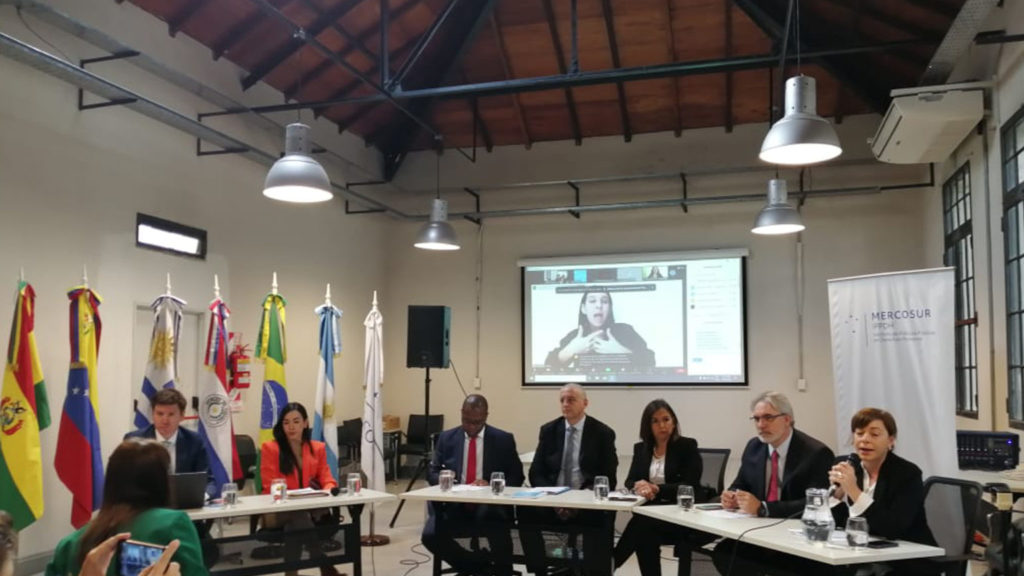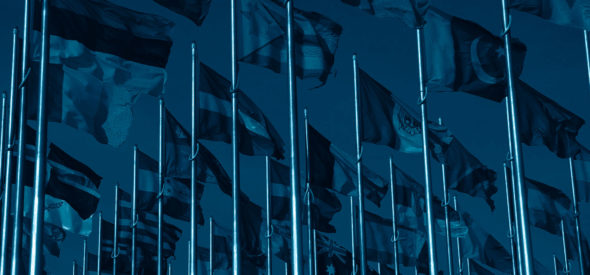ADC calls for digital agenda on Human Rights to High Authorities of Mercosur
At the 16th Meeting of Human Rights High Authorities of MERCOSUR (RAADH for its abbreviation in Spanish), which took place from May 9 to 12 in the City of Buenos Aires, the Association for Civil Rights emphasized the need to put forward a digital agenda permeating all the Permanent Committees of the organization. “We must strengthen the digital perspective, but governments and authorities should do so as well, always respecting human rights,” said project assistant Giovanny Córdova Trujillo, who attended with his colleague Lorenzo Irrazábal.
ADC participated in the session “Role of CSOs in Strengthening Democracy,” where the High Authorities of the RAADH met with civil society organizations from the region. In several instances, CSO representatives underlined the failure to deal with issues proposed in earlier meetings. Although new problems have arisen, others were of a previous existence.
In this respect, ADC stressed the importance of all the topics considered, given that all relate to the digital perspective to a certain degree. This was expressed in our recent Contribution to developing a human rights digital agenda, where ADC provides a list of observations on questions such as freedom of expression, content moderation, digital accessibility, privacy and data protection, gender, diversity, and surveillance technologies.
At the closing of the event, ADC highlighted the importance of spaces such as the RAADH for joint action and urged to maintain them and encourage advocacy in the different work agendas.

The RAADH
The Meeting of High Authorities on Human Rights and Chancelleries of MERCOSUR and Associated States (RAADH) is a space for intergovernmental coordination on human rights public policies. It brings together the authorities of the competent institutions in the field.
It functions as a specialized instance, dependent on the Common Market Council (CMC), overseen by the Consultation and Political Coordination Forum, to examine and define public policies on human rights.
It is made up of the heads of the Ministries, Secretariats, Directorates, or equivalent governmental areas with competence in human rights matters and the leaders of the human rights directorates or the equivalent of the Foreign Ministries of the Party and the Associated States.
The meeting was held at the Instituto de Políticas Públicas en Derechos Humanos (IPPDH) headquarters in Buenos Aires.

